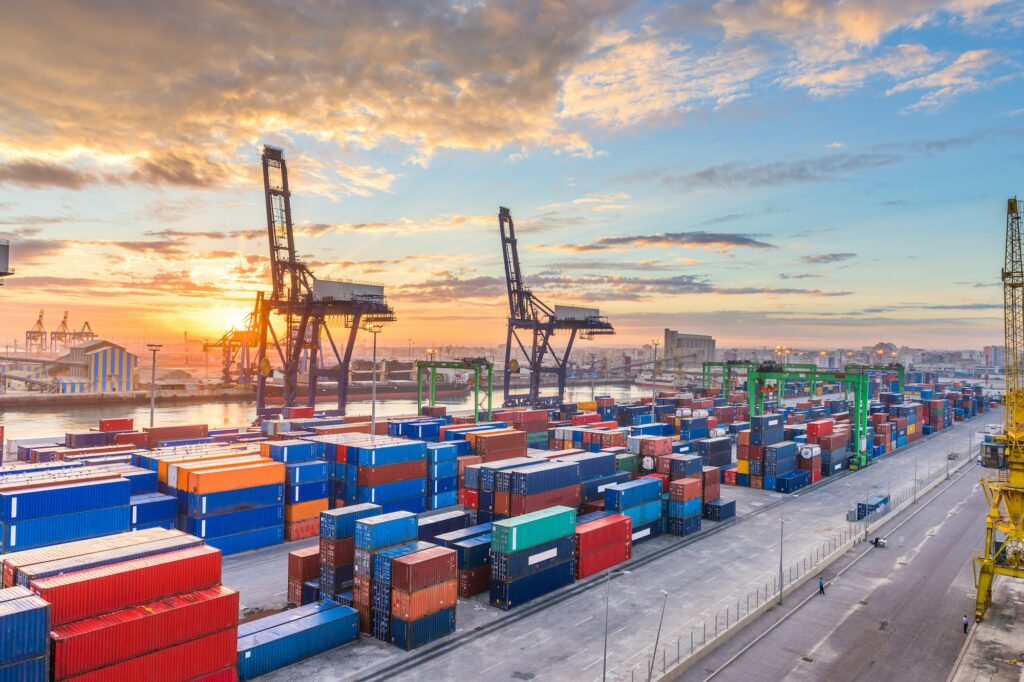Heavy Hauling: Strategies for Safe and Successful Transportation
Heavy hauling plays a crucial role in the logistics industry, ensuring the transportation of oversized and overweight cargo to various destinations. From construction machinery to

As a business, you may expand your operations by shipping products internationally. If so, it’s important to understand the best practices for international shipping so that your shipments are successful and cost-effective. International shipping has its own set of rules and regulations you need to follow and go by. Furthermore, each country is different, making it quite complex in some situations. However, with the right shipping company, you will have little to worry about.
First, it’s essential that you understand international shipping regulations and get familiar with customs declaration forms and documents. You’ll want to consider packaging and labeling requirements as well. Also, shipping internationally is different than shipping locally. You’ll want to check with your insurance company or the shipping company to ensure you have proper insurance. Additionally, ensure all paperwork is properly completed, including choosing appropriate payment options.
Shipping products internationally can be challenging due to customs regulations, carrier options, and paperwork requirements. To start, you’ll need to determine if the product can be shipped as intended. You can find many of these rules and regulations on Export.gov.
Basically, you’ll first need to ensure you don’t need to acquire an ECCN number from the Export Administration Regulations (EAR) division if you intend to ship in larger quantities.
If your shipment requires a validated export license or is worth more than $2,500, Electronic Export Information (EEI) must be filed through the Automated Export System (AES).
Keep in mind there are some things that are restricted from shipping. You’ll also need to ensure you are not shipping any of those items.
This all can be accomplished with the right customs broker. Don’t panic. You don’t actually need to know all of the ins and outs of shipping internationally. A customs broker can help.
International shipping is a complex process, but choosing the right customs broker can make a big difference. A customs broker is a professional who helps with document preparation and goods clearance through customs. To select the best customs broker for your needs, follow these tips:
When choosing an international shipping carrier, consider the transit times, rates, service options, and reliability. Look for carriers offering freight forwarding or consolidation services to save money.
After pickup, pay duties and taxes associated with imports/exports and clear items through customs control. Additionally, your carrier should use tools to provide real-time information to their customers and regularly communicate updates regarding shipment status. Ensuring compliance with regulations and customer satisfaction are crucial for successful international shipping.
Your customs broker will need proper documentation filled out. You should prepare to have this come to you. You’ll need to know a few things, such as:
Let’s go over these in a little more detail.
The purpose of your shipment is a pretty easy one. Is this for personal use or reasons? In many cases, with businesses, it’s not. It is for commercial purposes or returns and repairs. The options will be listed for you. You just need to be honest about which one you choose. This will have an effect on the customs cost.
Documents are exactly what you would expect, a document for some purpose. This isn’t a tangible good and, in many cases, has no commercial value. However, commodities are products that do have value and will need to be taxed accordingly.
Here you will need to put the value of the shipment. This will be used for insurance purposes as well as taxes and duties.
This one is pretty easy; where was the product made or grown?
To properly analyze tariff and product classification, international trade requires the use of Harmonized Tariff Schedule (HTS) codes, which importers and exporters require. Unfortunately, locating the appropriate HTS code can be challenging, especially for first-time importers. However, there are helpful resources out there that can be utilized. This is a good resource for that: https://hts.usitc.gov/.
This will most likely be determined by your customs broker. They calculate this based on the information you provide.
This is pretty easy for most exporters. You will need the buyers’ information.
This usually has already been agreed upon between the seller and buyer but simply needs to be declared.
International shipping can be daunting for businesses. However, with the right knowledge and logistical solutions, you can offer your customers timely and affordable goods. To start, familiarize yourself with the shipping rules and regulations, researching the costs involved and lead times.
When packing, use appropriate materials to protect items from damage and ensure accurate and up-to-date documentation.
Work with reputable shipping carrier suppliers. These carriers should be up to date with the latest in technology. This will ensure that you have very little to worry about when shipping internationally.
If you want to break into the international shipping market, contact us today at PM Logistics Services to learn more.
Heavy hauling plays a crucial role in the logistics industry, ensuring the transportation of oversized and overweight cargo to various destinations. From construction machinery to
Freight shipping plays a critical role in supply chain management. It ensures the timely and efficient movement of goods from one location to another. However,
In today’s global economy, efficient freight logistics plays a crucial role in ensuring the smooth movement of goods and materials. As businesses strive for cost-effective
In today’s fast-paced world, efficient shipping is crucial for businesses to thrive. PM Logistics Services understands the importance of streamlined transportation solutions, and one such
Welcome to PM Logistics Services’ comprehensive guide to drayage services in Charleston and Greer, SC. In this article, we will delve into the significance of
In today’s fast-paced business environment, having visibility into the supply chain from producer to consumer is essential. This allows for maximum efficiency and reduces the